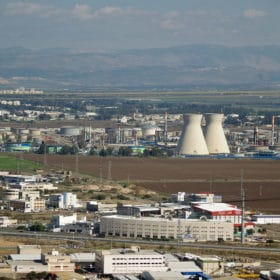‘Lack of objections should mean permits are automatically granted for solar’
The question of overly complicated, time-consuming permitting processes again raised its head at a two-day online event held by the Global Solar Council to examine how to accelerate deployment of photovoltaics.
Botswana tops list of world’s ‘super abundant’ renewables nations
A Carbon Tracker report estimates 60% of the world’s technical solar potential – enough to produce 3.5 exawatt-hours of clean electricity per year – would already be cheaper than fossil fuel if installed. Of the remainder, most would be in sub-Saharan Africa, a region which has the potential to be a global solar and wind powerhouse.
Is China shunning coal in its Belt and Road Initiative?
A leaked letter apparently sent by a diplomatic official states Beijing will no longer consider coal-related investment in Bangladesh, firing speculation that policy could be applied along all of the vast twin trade routes.
Solar could help Azerbaijan consolidate gains in Nagorno Karabakh after recent conflict
That was just one of the revelations of the latest Dentons’ Guide to renewables investment in Europe, which also noted solar plants could be switched off in Slovakia, Ireland could go either way on clean power pricing, and Luxembourg is struggling with a surprising headache.
China’s ‘quasi-monopolistic’ stranglehold on solar noted by EU body
The bloc should accelerate investment into mining and processing within its shores, as well as ramping up recycling, according to European employers and trades unions, with coal workers already equipped with the necessary transferable skills.
Global hydrogen project pipeline expected to exceed $300 billion by 2030
A new report from the Hydrogen Council has estimated that the current hydrogen project pipeline, if realized, would exceed investments of $300 billion by 2030. The report comes amid an acceleration in hydrogen project announcements worldwide and great expectation of hydrogen’s potential in the energy transition.
The world won’t wait – Biden needs to catch up
The inauguration of Joe Biden as the 46th President of the United States has brought hope the country will play a central role in the world’s energy transition and combating climate change. However, rather than teaching other countries lessons, the U.S. will need to catch up with the rest of the world, and it needs to do so quickly – the world won’t wait for the U.S.
Peeking into 2021: Green bonds to reach US$500 billion per year, solar on track to outrank oil and gas
Global management consulting firm PricewaterhouseCoopers has issued a general economic prediction for 2021. Aside from some general notes on GDP recovery post-Covid, the analysts’ notes were heavily focussed on climate and energy finance and policy.
Fossils fuels to lead as Africa doubles its energy capacity this decade
Researchers led by Oxford University have put together a comprehensive forecast of energy developments across the African continent up to 2030. Based on analysis of data on more than 3,000 power plant projects across 54 countries, the report predicts a doubling of generation capacity in Africa over the next decade, with fossil fuel projects to represent 60% of the total. Based on this, the authors warn of the need for both the public and private sectors to change to tack to avoid a missed opportunity for renewable energy.
The geopolitical impact of hydrogen
In an interview with pv magazine, Indra Overland, head of the Center for Energy Research at the Norwegian Institute for International Affairs, explains how international hydrogen strategies may play out in the upcoming decades. Plans and roadmaps will not be enough to turn a hydrogen economy into reality and its success will depend on becoming cost-competitive vis-à-vis other solutions in several areas, he says.









